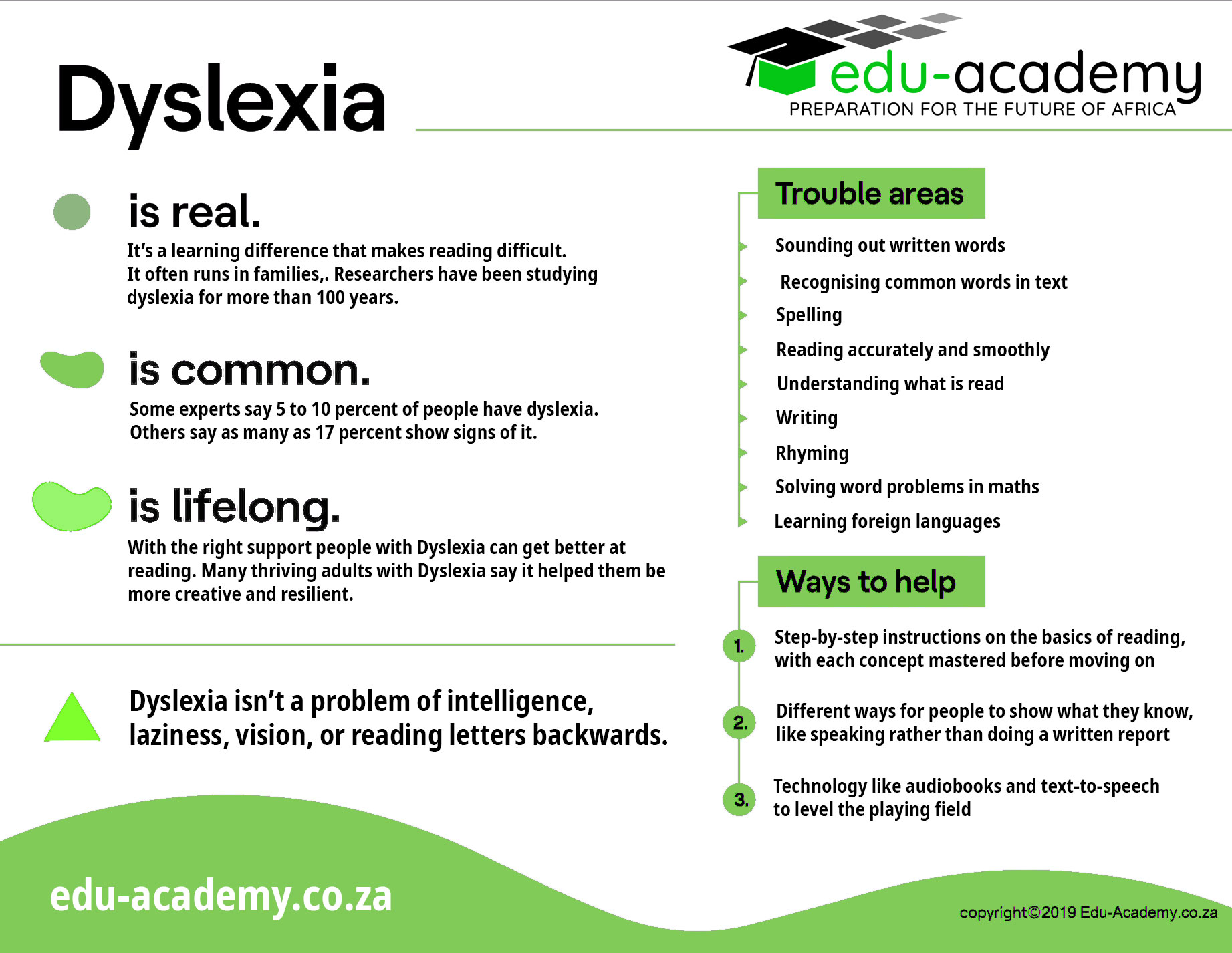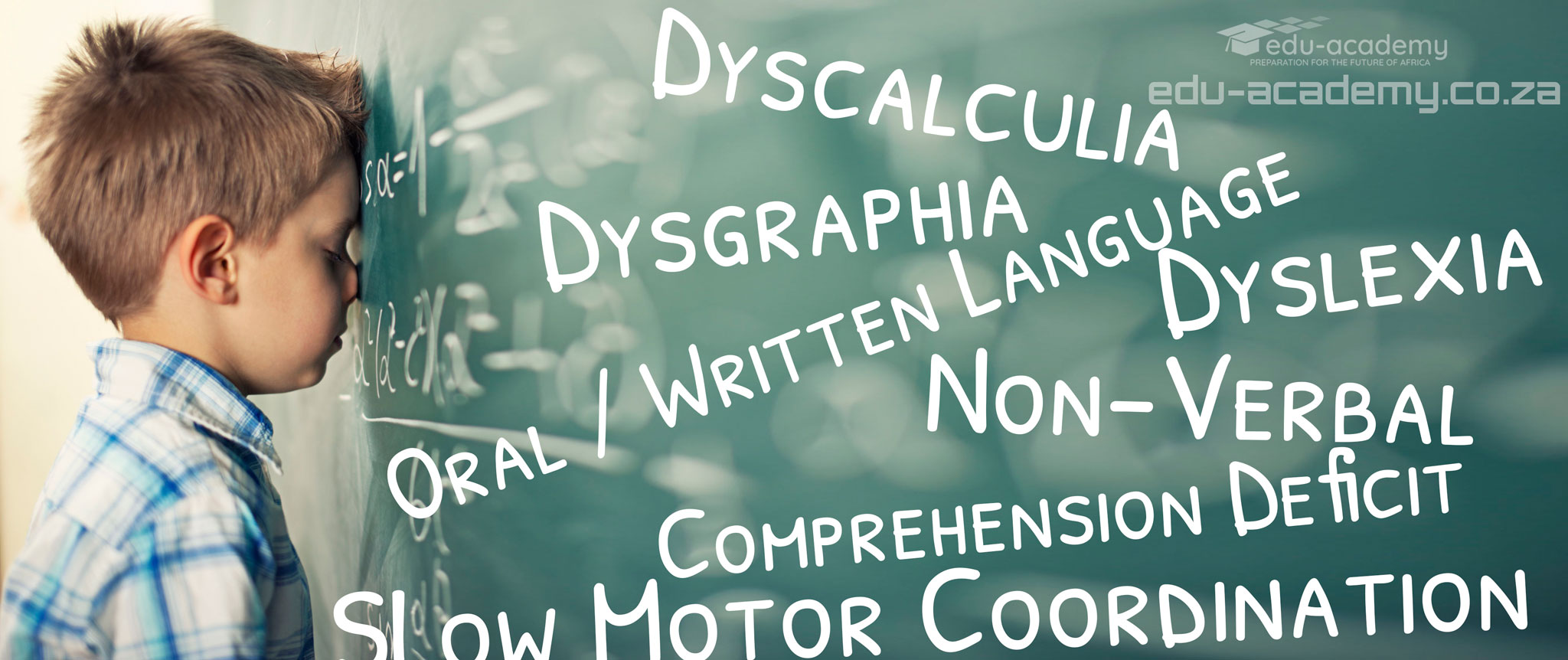Learning disabilities are due to genetic and/or neurobiological factors that alter brain functioning in a manner which affects one or more cognitive processes related to learning. These processing problems can interfere with learning basic skills such as reading, writing and/or maths. They can also interfere with higher level skills such as organization, time planning, abstract reasoning, long or short term memory and attention. It is important to realize that learning disabilities can affect an individual’s life beyond academics and can impact relationships with family, friends and in the workplace.
Since difficulties with reading, writing and/or maths are recognizable problems during the school years, the signs and symptoms of learning disabilities are most often diagnosed during that time. However, some individuals do not receive an evaluation until they are in post-secondary education or adults in the workforce. Other individuals with learning disabilities may never receive an evaluation and go through life, never knowing why they have difficulties with academics and why they may be having problems in their jobs or in relationships with family and friends.
Learning disabilities should not be confused with learning problems which are primarily the result of visual, hearing, or motor handicaps; of intellectual disability; of emotional disturbance; or of environmental, cultural or economic disadvantages.
Generally speaking, people with learning disabilities are of average or above average intelligence. There often appears to be a gap between the individual’s potential and actual achievement. This is why learning disabilities are referred to as “hidden disabilities”: the person looks perfectly “normal” and seems to be a very bright and intelligent person, yet may be unable to demonstrate the skill level expected from someone of a similar age.
A learning disability cannot be cured or fixed; it is a lifelong challenge. However, with appropriate support and intervention, people with learning disabilities can achieve success in school, at work, in relationships, and in the community.
“Learning Disabilities” is an “umbrella” term describing a number of other, more specific learning disabilities, such as dyslexia and dysgraphia. Find the signs and symptoms of each, plus strategies to help below.
Types of Learning Disabilities
-
Dyslexia
A specific learning disability that affects reading and related language-based processing skills.
People with dyslexia typically have trouble reading fluently. They often read slowly and make mistakes. That can impact how well they comprehend what they read. But when other people read to them, they often have no problem understanding the text.
Dyslexia can create difficulty with other skills, too. These include:
- Reading comprehension
- Spelling
- Writing
- Math
Dyslexia is a common condition that makes it hard to read. Some experts believe that between 5 and 10 percent of people have it. Others say as many as 17 percent of people show signs of reading challenges.
Children with dyslexia don’t outgrow it. But there are teaching approaches and strategies that can help people with dyslexia improve their reading skills and manage the challenges. People of any age can be tested for dyslexia, although the tests are different for adults than for children.
- Dyscalculia
- Dysgraphia - Slow Motor Coordination
- Non-Verbal Learning Disabilities
- Oral / Written Language Disorder and Specific Reading Comprehension Deficit
click on each above to expand more information

![]() The modular nature of the Edu-Academy online Edu-Training remote learning solution assists students with learning disorders. This is because as the total online learner solution offered to schools by the Edu-Training solution comprises of a platform that enables teachers to plan all their lessons which can then be logically laid out with an index to all the lessons for a class, introductory notes and attached helpful resources. Each lesson then is made up of both Text based and video based modules, with attached learner resources that can be uploaded by the teacher, followed by randomised quiz questions that require a set pass rate to progress to the next lesson module. This ensures that the student completely understands the lesson before being allowed to progress to the next. This method of learning can quickly assist in identifying problem areas with students and allow teachers to address any specific student's needs using either additional resouces or private video chats to address any questions the student might have.
The modular nature of the Edu-Academy online Edu-Training remote learning solution assists students with learning disorders. This is because as the total online learner solution offered to schools by the Edu-Training solution comprises of a platform that enables teachers to plan all their lessons which can then be logically laid out with an index to all the lessons for a class, introductory notes and attached helpful resources. Each lesson then is made up of both Text based and video based modules, with attached learner resources that can be uploaded by the teacher, followed by randomised quiz questions that require a set pass rate to progress to the next lesson module. This ensures that the student completely understands the lesson before being allowed to progress to the next. This method of learning can quickly assist in identifying problem areas with students and allow teachers to address any specific student's needs using either additional resouces or private video chats to address any questions the student might have.
The Edu-Training slolution remote learner solution further allows the student or the whole class and their teacher to conduct live video camera class sessions as well to allow for group based activities and these sessions also offer shared desktop capabilities allowing both student and teacher to show what they are working on. The class sessions has teacher mute feature so that students can press the "raise hand" button to ask questions preventing unnesesary noise from interupting classes. All verbal conversation are automatically transcribed during the online interactions for later review by either the student and or the teacher. Edu-Academy has created a total remote learner solution for schools has your school subscribed to Edu-Academy yet?
FIND OUT MORE AND HOW TO ADD MY SCHOOL
other articles that might be useful







